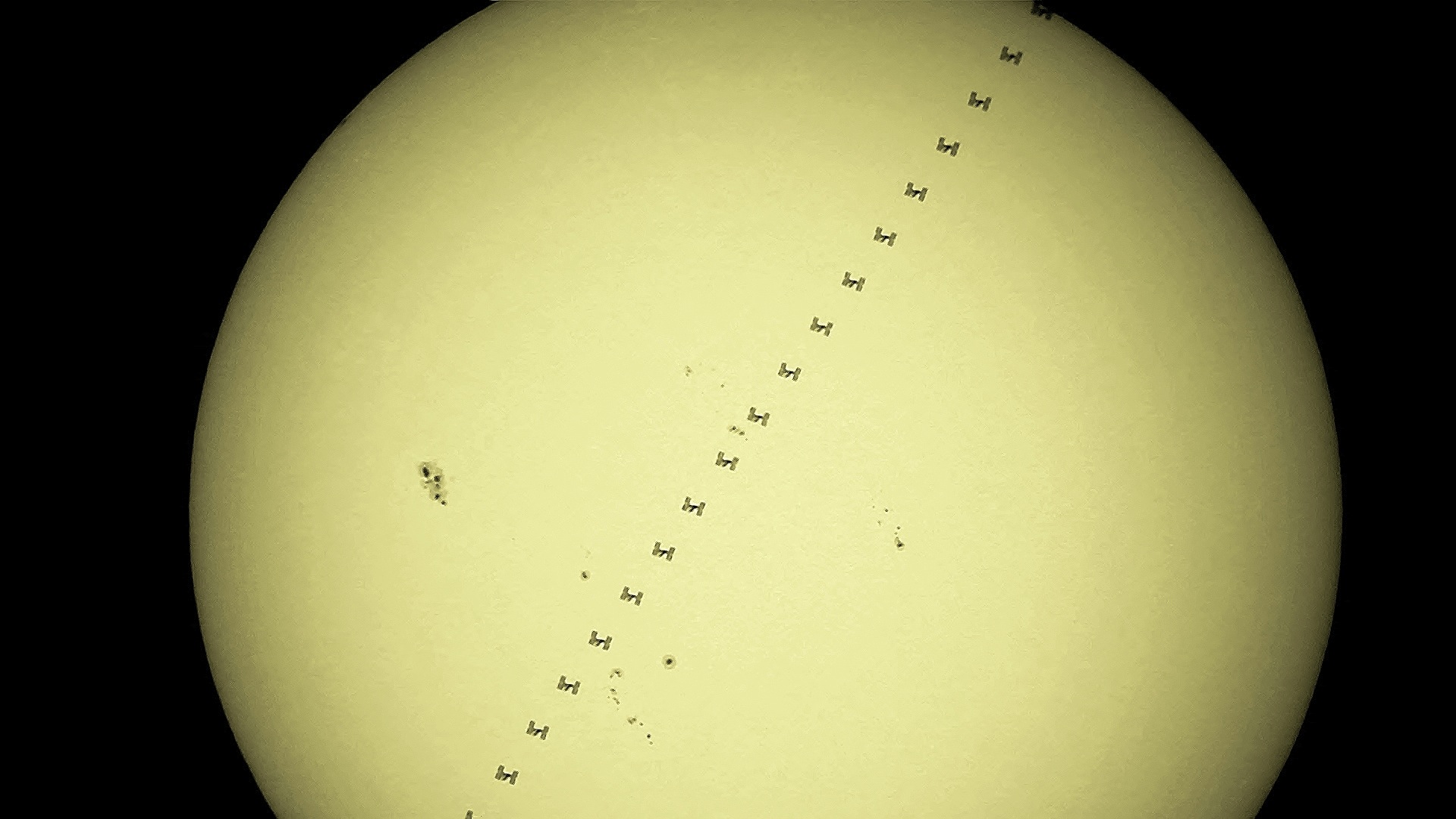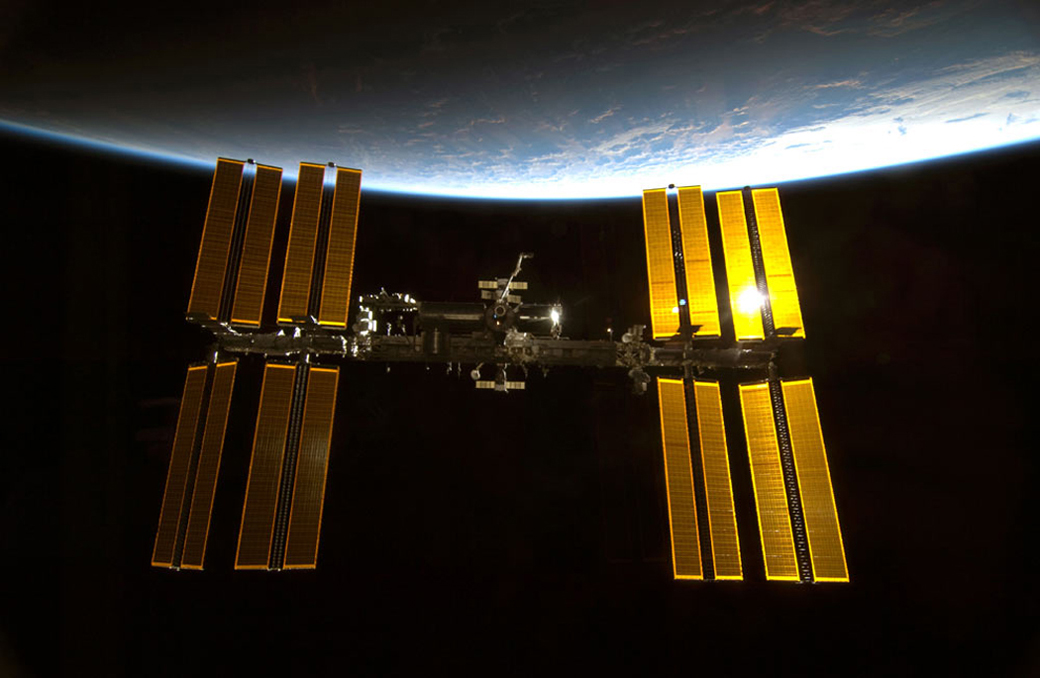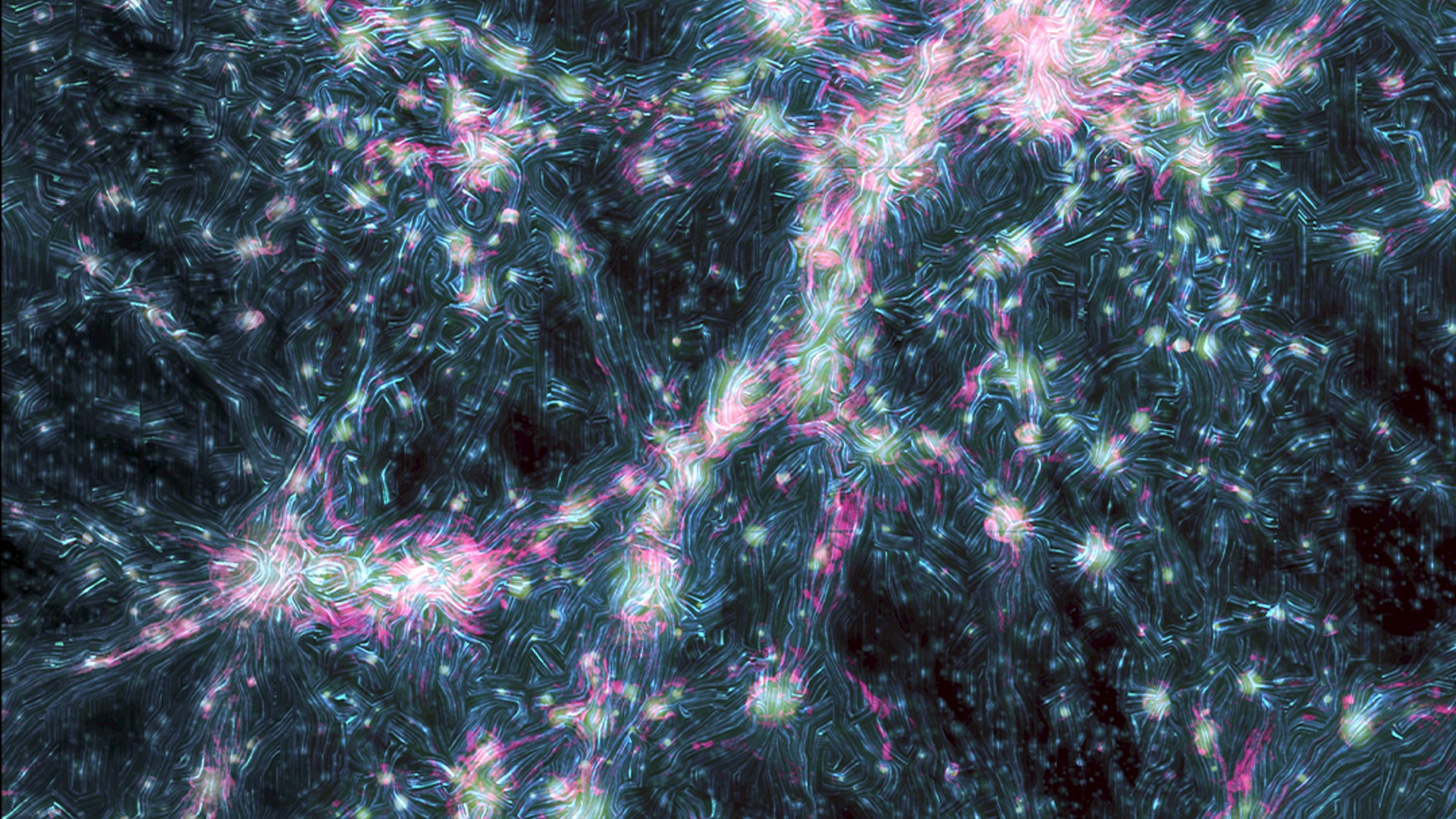
Astrophotographer Dale Mayotte recently sent SPACE.com this spectacular composite photo of the International Space Station crossing the face of the sun.
While Mayotte only submitted the image recently, he actually took the 19 photos that were combined to create the stunning composite view of the International Space Station and sun on June. 19 from his backyard in Clinton Twp., Mich. at 5:28 p.m. local time.
"I have been trying to get this photo opportunity for a couple of years, but it seems that every time I would get the chance it was either cloudy or the orbit of the ISS would change by a tiny amount and the crossing was no longer in my area. It was either out in the middle of the Lake east of my location or further east into Canada," Mayotte wrote SPACE.com in an email. [Photos: Space Station and Other Spaceships Seen from Earth]
"This is the one and only time everything worked out perfectly and the wait was well worth it."
Mayotte used an 11-inch Celestron CPC telescope with a Baader white light solar filter and a Canon Rebel T1i camera with a yellow filter to give the sun a hint of the color we would see with our eyes. He used the websites Heavens Above for the time and CalSky to learn the path of crossing.
"It was a beautiful sight to see and was even more awesome knowing that six humans were aboard traveling 17,500 miles per hour (28,163 km/h) some 200 miles (321 km) above our tiny little world," Mayotte said.

At the time of the photo, the space station was home to the six-person Expedition 36 crew, which included NASA astronauts Karen Nyberg and Chris Cassidy, Italian astronaut Luca Parmitano and Russian cosmonauts Fyodor Yurchikhin, Pavel Vinogradov and Alexander Misurkin. Cassidy, Vinogradov and Misurkin returned to Earth last month and were replaced by NASA astroanut Mike Hopkins and cosmonauts Oleg Kotov and Sergey Ryazansky, who launched to the station on Sept. 25.
Get the Space.com Newsletter
Breaking space news, the latest updates on rocket launches, skywatching events and more!
Warning: Never look directly at the sun through binoculars, telescopes or with your unaided eye. Severe eye damage, and even blindness, can result. Astronomers use special filters to safely observe the sun and protective glasses are required for solar eclipse viewing.
To see more amazing night sky photos submitted by SPACE.com readers, visit our astrophotography archive.
Editor's note: If you have an amazing night sky photo you'd like to share for a possible story or image gallery, please contact managing editor Tariq Malik at spacephotos@space.com.
Follow SPACE.com on Twitter @Spacedotcom. We're also on Facebook & Google+. Original article on SPACE.com.
Join our Space Forums to keep talking space on the latest missions, night sky and more! And if you have a news tip, correction or comment, let us know at: community@space.com.
Nina Sen is a freelance writer and producer who covered night sky photography and astronomy for Space.com. She began writing and producing content for Space.com in 2011 with a focus on story and image production, as well as amazing space photos captured by NASA telescopes and other missions. Her work also includes coverage of amazing images by astrophotographers that showcase the night sky's beauty.
